In past years, each October I have used this blog to review books that I’ve found “haunting” during the year. But this month I have other things I want to write about, so this will be the only post on haunting books this year.
I’ve read a bunch of them.
I reviewed Go Set a Watchman recently, so I won’t write more now, other than to say that the book haunts me, both for itself and for its comparison to the classic To Kill a Mockingbird. I didn’t think Go Set a Watchman was as well written as Harper Lee’s other book, but it offers a picture into the segregationist times of the 1950s that is hard to forget.
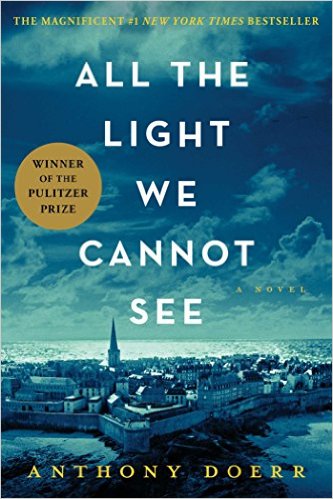 All the Light We Cannot See was the best book I’ve read this year. The Pulitzer Prize winning novel by Anthony Doerr haunts me because of the compelling characters and the tragic circumstances in which they found themselves. The book is about two children who come of age during World War II—a blind French girl named Marie-Laure and the mechanically gifted German boy Werner. Their lives touch briefly, leaving bittersweet consequences. It isn’t a happy book, but then, what war story can be? Doerr’s novel is similar in tone to The Book Thief, though the authors’ writing styles are very different.
All the Light We Cannot See was the best book I’ve read this year. The Pulitzer Prize winning novel by Anthony Doerr haunts me because of the compelling characters and the tragic circumstances in which they found themselves. The book is about two children who come of age during World War II—a blind French girl named Marie-Laure and the mechanically gifted German boy Werner. Their lives touch briefly, leaving bittersweet consequences. It isn’t a happy book, but then, what war story can be? Doerr’s novel is similar in tone to The Book Thief, though the authors’ writing styles are very different.
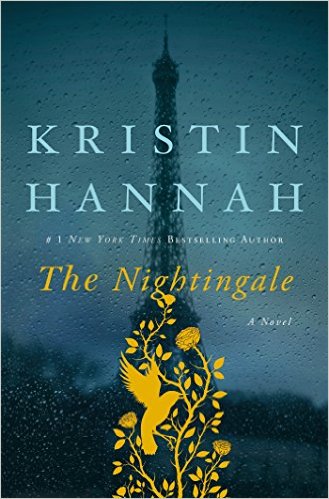 About the same time I read All the Light We Cannot See, I also read The Nightingale, by Kristin Hannah. If I hadn’t read Doerr’s book in such close proximity, I might have liked The Nightingale even better than I did. I’ve read a couple of other books by Hannah, but The Nightingale is her best by far. Because both this book and Doerr’s book were about France during World War II, it is impossible not to compare them.
About the same time I read All the Light We Cannot See, I also read The Nightingale, by Kristin Hannah. If I hadn’t read Doerr’s book in such close proximity, I might have liked The Nightingale even better than I did. I’ve read a couple of other books by Hannah, but The Nightingale is her best by far. Because both this book and Doerr’s book were about France during World War II, it is impossible not to compare them.
The Nightingale is an adult story. It deals with the terrible choices that must be made during war. Should one collaborate or not? What is collaboration and what is survival? What happens on the home front while men are away fighting? Can there ever be friendship between the occupied and the occupier?
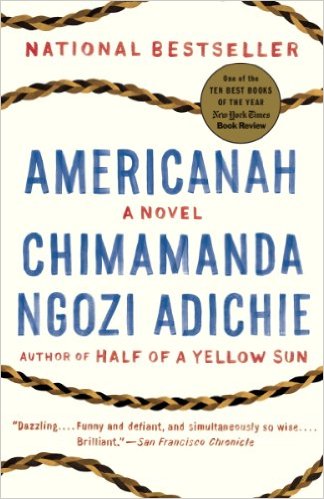 Two other books I also compared this year were Americanah, by Chimamanda Ngozi Adichie, and Passing, by Nella Larsen. I read both because they were part of the Stanford Book Salon online reading program for Stanford alumni. Both novels were about Blacks in America, though they dealt with very different segments of Black culture in very different times.
Two other books I also compared this year were Americanah, by Chimamanda Ngozi Adichie, and Passing, by Nella Larsen. I read both because they were part of the Stanford Book Salon online reading program for Stanford alumni. Both novels were about Blacks in America, though they dealt with very different segments of Black culture in very different times.
Americanah is about a Nigerian student who emigrates to the United States. We see her cope with racism in America, which she had not experienced in Nigeria. And we see her similar problems re-entering Nigerian society when she returns. The book describes both the uniqueness of American and Nigerian societies and the universal themes of family, love, and disengagement.
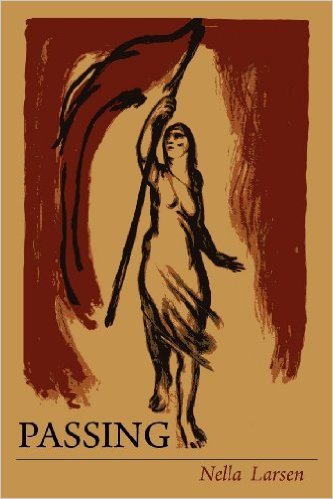 Passing dealt with African Americans in Harlem during the 1920s. The main character was a Black woman who could “pass” as white, and did. While the book is dated in many ways, it raises questions about whether we can ever escape our past, and whether we should do so if we can. If someone tries to escape herself, is she doing it because she hates her very being? Or is it a rational act in a racist society?
Passing dealt with African Americans in Harlem during the 1920s. The main character was a Black woman who could “pass” as white, and did. While the book is dated in many ways, it raises questions about whether we can ever escape our past, and whether we should do so if we can. If someone tries to escape herself, is she doing it because she hates her very being? Or is it a rational act in a racist society?
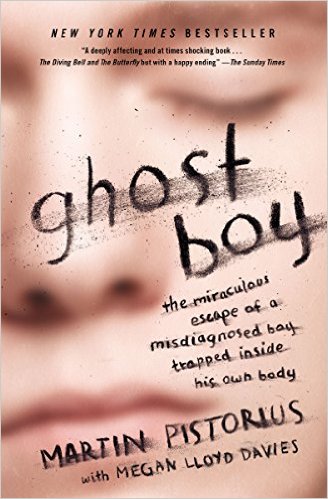 Another haunting book I read this year was Ghost Boy, written by Martin Pistorius with Megan Lloyd Davis. The book is about Martin Pistorius, a South African who was in a coma for 14 years, beginning in his teenage years. For most of this time, Pistorius was conscious, though unable to move voluntarily or to communicate. He hears his family communicate, including his mother’s wish that he were dead. He despairs and hopes he will die. Ultimately, one of his caregivers notices that he can communicate with his eyes, he is tested, given a computer to help him communicate, and slowly returns to a productive life, though with significant disabilities. The book haunted me because it reminded me of how we treat the most vulnerable in our society. And because it is probably one of most people’s worst fears to be trapped in one’s body, unable to communicate, unable to control any aspect of life.
Another haunting book I read this year was Ghost Boy, written by Martin Pistorius with Megan Lloyd Davis. The book is about Martin Pistorius, a South African who was in a coma for 14 years, beginning in his teenage years. For most of this time, Pistorius was conscious, though unable to move voluntarily or to communicate. He hears his family communicate, including his mother’s wish that he were dead. He despairs and hopes he will die. Ultimately, one of his caregivers notices that he can communicate with his eyes, he is tested, given a computer to help him communicate, and slowly returns to a productive life, though with significant disabilities. The book haunted me because it reminded me of how we treat the most vulnerable in our society. And because it is probably one of most people’s worst fears to be trapped in one’s body, unable to communicate, unable to control any aspect of life.
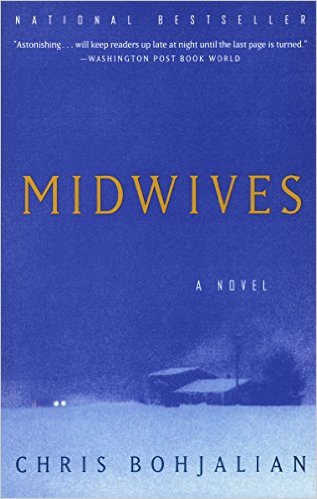 Two other books that dealt with health issues that haunt me are Midwives, by Chris Bohjalian, and Being Mortal, by Atul Gawande. I didn’t compare these books, because they were very different.
Two other books that dealt with health issues that haunt me are Midwives, by Chris Bohjalian, and Being Mortal, by Atul Gawande. I didn’t compare these books, because they were very different.
Midwives is a novel about a midwife involved in a delivery that goes terribly wrong and the consequences to herself and her family. There is family drama, courtroom drama, and introspection—both the midwife and her family members wonder if she could have made a mistake. It’s about doubting self and doubting those we love.
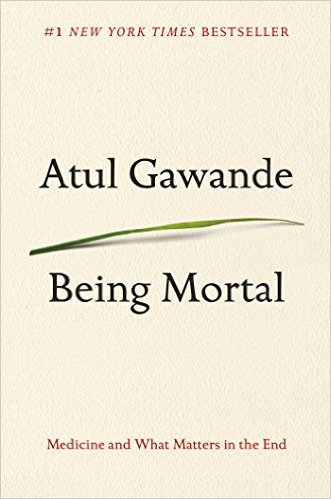 Being Mortal is nonfiction and discusses the way our society treats the elderly and dying, written by a medical doctor. Given my own family’s involvement with Alzheimer’s and nursing homes over the last few years, and my own fears of aging, I was moved to tears frequently as I read Gawande’s book.
Being Mortal is nonfiction and discusses the way our society treats the elderly and dying, written by a medical doctor. Given my own family’s involvement with Alzheimer’s and nursing homes over the last few years, and my own fears of aging, I was moved to tears frequently as I read Gawande’s book.
Finally, an honorable mention in the category of “haunting book” goes to The Girl on the Train, by Paula Hawkins. As a writer, I admire the author’s development of three unreliable narrators. It is a good murder mystery, and, though I guessed “whodunit”, I enjoyed it until the last page. This novel isn’t quite as haunting as Gone Girl, but it is well worth a read.
All of these books deserve your time.
What books have haunted you this year?




I’ve wanted to read Midwives, Theresa. One book that will continue to haunt me, for personal reasons is Still Alice.
I agree, Jill. Still Alice is haunting.
A Fort of Nine Towers-An Afghan Family Story by Qais Akbar Omar. It’s an up-close and personal look of life during the Afghan civil war. A great read.
Great reviews. Thank you. I need to read “Passing.” I didn’t know about it and now I do. And that’s why I read blogs….to find out things I didn’t know. Well done.
I had better live a very long time because I have so many books to read… I’m going to download Passing and Being Mortal right now. Might download Ghost Boy and Midwives while I’m at it…. Fortunately I’ve already read All The Light we Cannot See and Girl on the Train.
Hope you enjoy them!
There are a couple of books on your list I want to read, Theresa. I read Midwives. Very good. Thanks for the recommendations!
Hope you like these books — I thought they all had something to offer.
Theresa